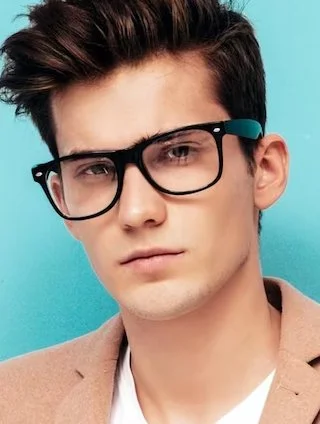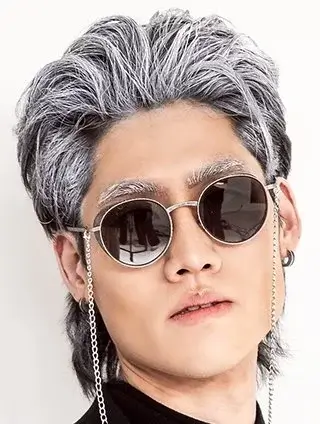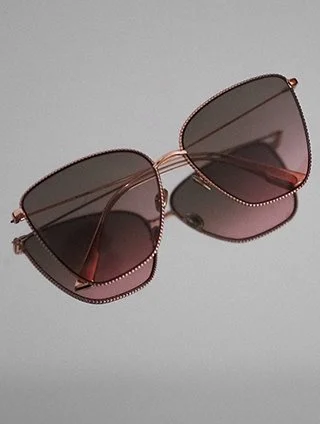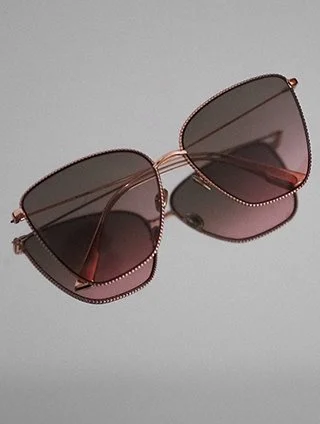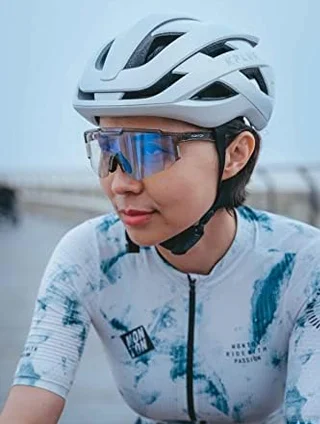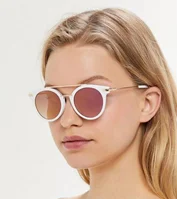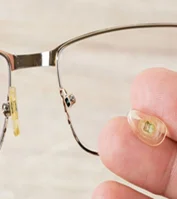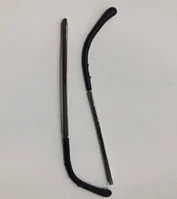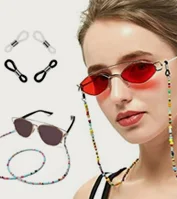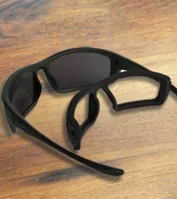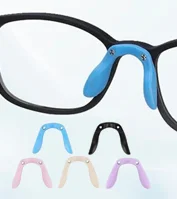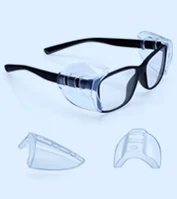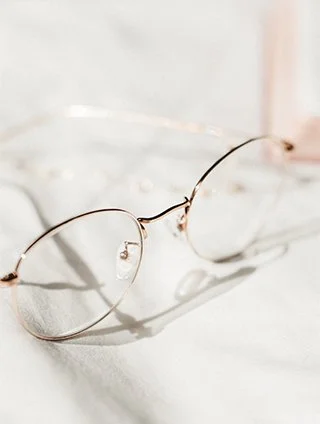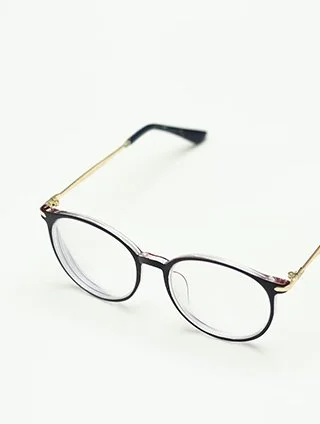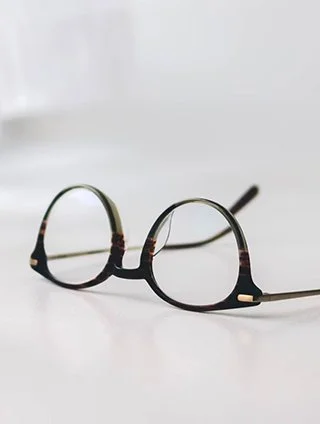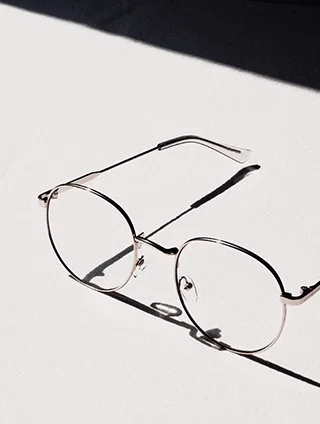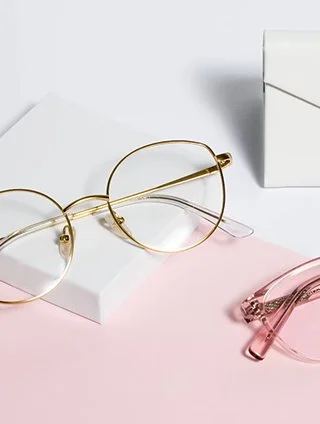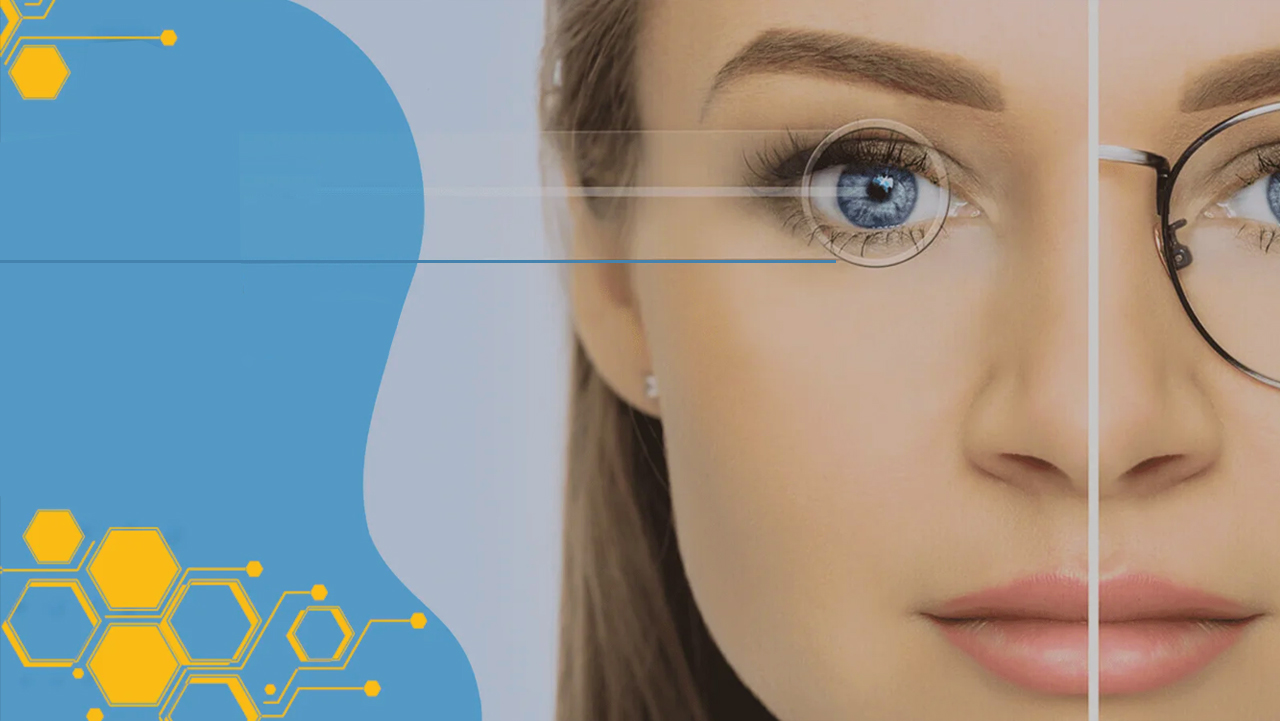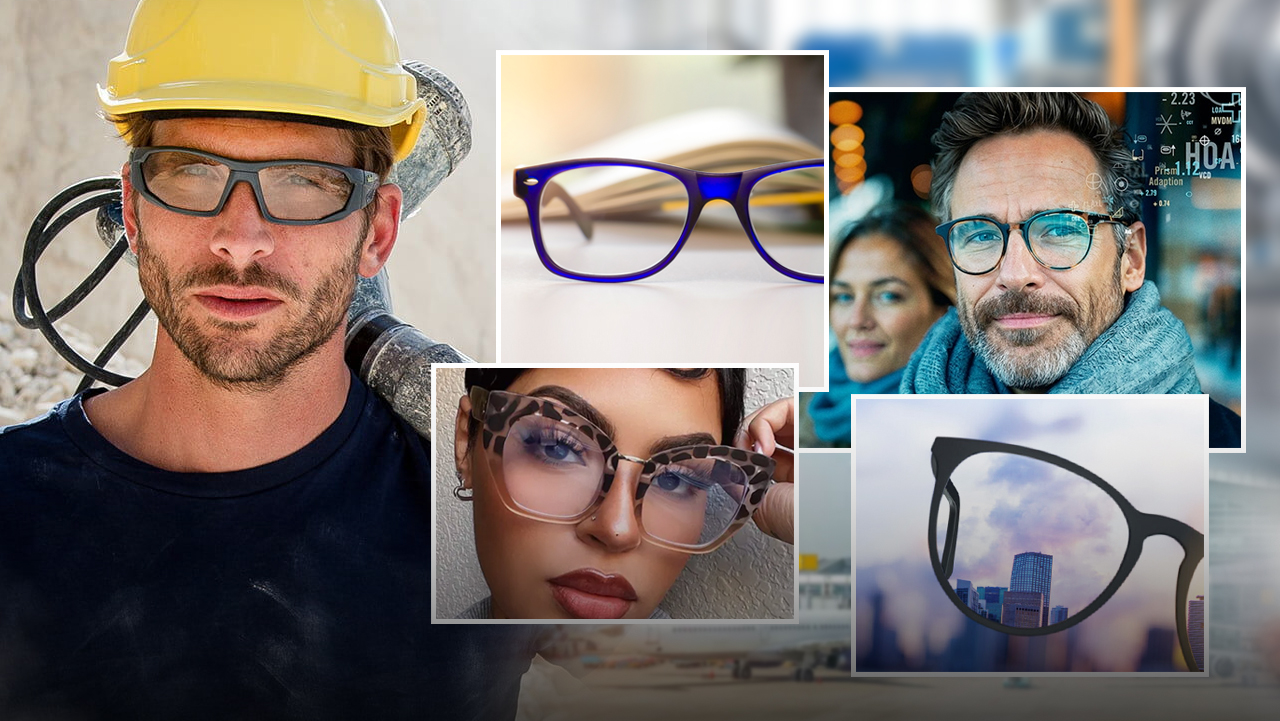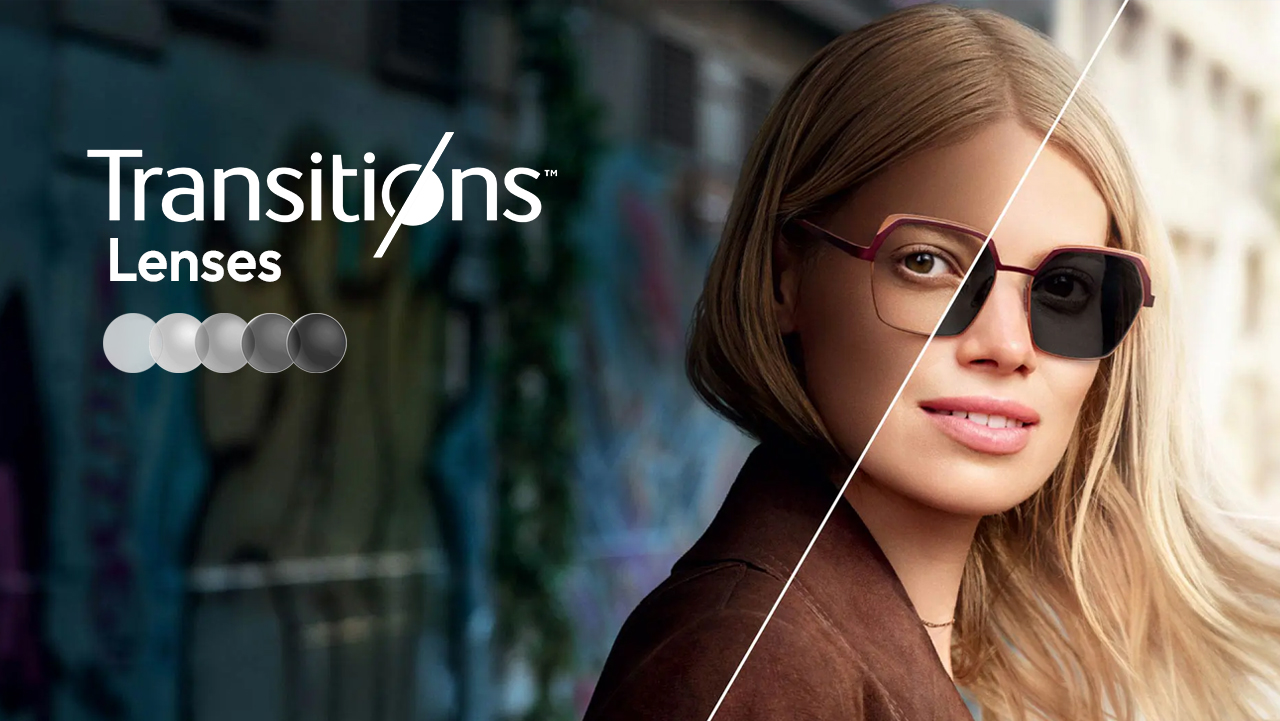Most of the time, choosing sunglasses only involves choosing ones that are fashionable and comfortable, but you should also always consider how they shield your eyes. Choosing the best sunglasses is crucial for maintaining appropriate eye care since shielding your eyes from damaging UV rays is crucial. When buying sunglasses, you can usually determine if they block UV rays by looking at the label, but you can also try them at home. To find out how effectively they reflect light, you may utilize a UV lamp or get your lenses inspected by an optometrist.
What Is Meant By UV-Blocking Sunglasses?
The term "UV protection" describes a pair of sunglasses' capacity to filter out dangerous UV radiation. There are two sorts of these rays:
- UVA rays with greater wavelengths enter the skin and eyes deeply, raising your chance of getting certain eye disorders and causing premature skin ageing.
- UVB rays, are mostly to blame for sunburns and temporary eye damage because of their shorter wavelength.
UV-protective sunglasses are made expressly for filtering both kinds of radiation. The lenses are coated with a unique substance with elements that soak up and filter out dangerous UV radiation during manufacturing. UV-protective sunglasses play a role in lowering the risk of eye damage by keeping UV rays out of your eyes and preserving your eyesight.
Myth Busters: There Is No Protection Provided by Cheap Sunglasses
You've been anticipating the ideal beach weekend for the entire week now that summer has officially arrived! Your finest swimsuit is on, the cooler is full, sunscreen is applied, and floaties are inflated.
But hold on! You need to immediately purchase some new sunglasses before starting your vacation because you've lost your old ones again. You hurry in to get a pair because, fear not, the petrol station sells them. However, as you choose from the shelf, you stop to consider if inexpensive sunglasses truly provide protection.
The best way to distinguish quality sunglasses from poor sunglasses is to first understand what UV rays are and how they can be damaging. One kind of radiation found in sunshine is ultraviolet (UV) radiation. Although there are benefits, it is advised to only be exposed in tiny amounts. In actuality, the World Health Organization advises two to three times a week, five to fifteen minutes of sun exposure.
Choosing the correct pair of shades is crucial since failing to shield your eyes from sunshine can result in long-term issues and even possibly debilitating eye disorders. Having said that, an expensive pair of sunglasses does not inevitably equate to "good sunglasses," nor does an inexpensive pair imply that they are "bad sunglasses."
The Significance of Sunglasses

Sunglasses are essential for keeping our eyes in the best possible condition. They are excellent tools for preventing the sun's UV rays from entering our eyes and causing dangerous problems.
- Cornea: Prolonged sun exposure can easily cause sunburn on your cornea. The portion of the eye that is exposed to sunlight and allows light and images to reach the retina is called the cornea. It is possible to get cataracts from prolonged sun exposure.
- Retina: The macula, a portion of the retina, is also susceptible to UV radiation from the sun. This may eventually cause vision loss due to macular degeneration of the eye.
- Iris: Due to their greater sensitivity to sun damage, people with green or blue irises should exercise extra care compared to individuals with brown irises. Later on, this may also exacerbate vision loss.
- Lens: To concentrate light on the retina and produce sharp images, this clear, biconvex structure in the eye is present. Failure to protect your eyes might cause damage to the lens and cataract formation.
Please think about visiting a doctor right away if you experience any of the following signs after being outside in the sun:
- Severe, persistent burning or redness in the eyes or eyelids.
- A decrease in eyelashes.
- Lesion development on the eyelids.
- Bumpy or lumpy areas that persist.
Do All Sunglasses Protect You From UV Radiation?
Not all sunglasses filter UV rays, even though the majority of them provide shade and lessen the intensity of the sun. It's critical to recognize the difference between sunglasses that are cosmetically tinted and those that genuinely offer adequate UV protection. Certain sunglasses online are made with dark, lens tinting that absorbs visible light, giving the impression that they can filter UV rays.
This does not, however, imply that they will be able to completely shield your eyes from dangerous radiation. They aren't a safe solution to prevent potential eye disorders brought on by exposure to sunshine, even though they could make you feel at ease by blocking out bright light. Sunglasses with varying UV protection ratings are available.
The best kinds are usually marked as UV 400 or 100% UV protection. When sunglasses have the mark "100% UV protection," it means that they have been processed to filter out all the ultraviolet (UV) rays, giving your eyes the best possible protection. When lenses are labelled UV 400, it signifies that they block nearly all of the ultraviolet (UV) rays that have wavelengths of 400 nanometers.
Which Sunglasses Are Ideal For Your Eyes?

The ones that suit your face well and those you wear. For example, you're exposed to the sun's UV rays if you move your glasses forward to create space between your eyes and the frames and don't cover them entirely.
- Larger frames can offer greater coverage, but people who wear them frequently slide the glasses down their noses and cover their eyes too much.
- Pricey glasses do not always provide superior UV protection.
- Small sunglasses are ineffective.
- The greatest shapes are wrapped ones. Reflective light coming in from the side causes about 20% of UV radiation to reach the eye: It is advised to use side shields or wraparound designs, especially with darker lenses.
- Antireflective layers have the potential to boost UV exposure by reflecting ultraviolet radiation into the eye.
- Excessively dark sunglasses are unreal. Dark lenses, however, may be dangerous if they don't provide enough UV protection or if the sun's rays enter the eye from the side.
Not every lens that claims to absorb all UV light can block all UV light. Even if the spectrum of ultraviolet radiation reaches 400 nm, makers of lenses that absorb UV rays with wavelengths as long as 380 nm are permitted to claim full UV defence in the US. Make sure the 400 nm UV light can't pass through your sunglasses.
Prescription Sunglasses
Contact lenses and glasses may not be the best option if you have trouble seeing, particularly if you travel or spend a lot of time outside. In addition, contact lenses might feel dry and uncomfortable in windy conditions or, worse, scratchy and gritty when at the beach. Clear lenses cannot block glare or strong light.
Fortunately, prescription sunglasses for men & women can be purchased for a variety of lens types to fit your needs, so your corrective prescription doesn't have to get in the way when you're hiking in the woods or relaxing by the pool. A trustworthy eye care provider like Eyeweb can help you create sunglasses that are precisely tailored to your prescription, regardless of whether you wear progressive, bifocal, varifocal, or myopic lenses.
Mirrors, solid or gradient tints, polarization filters, and speciality coatings are additional ways to further personalize prescription sunglasses. Be as specific as you can with your eye care provider while purchasing prescription sunglasses online. Tell them what activities and sports you wish to participate in, how frequently you intend on using the sunglasses, and if you want to use them while driving. This will assist in providing you with the most suitable customized lens option.
Polarized Sunglasses
The unfavourable blinding effect known as glare is produced by light reflections and is frequently seen near water, damp surfaces, or busy highways. Glare has the potential to be hazardous, particularly for motorists and outdoor athletes like cyclists, joggers, and skiers. Light waves oscillate in all directions, but they align just in a single direction (i.e., they become polarized) when it is reflected from smooth surfaces like wet roadways.
You can use this effect to get rid of glare. Certain sunglass lenses have polarization filters built in to prevent the passage of this reflected light, which is vertically polarized. You will enjoy everything with these sunglasses on without the bothersome reflections.
In addition to providing greater visual comfort, polarized sunglasses may enhance contrast perception and increase colour vibrancy, which makes them appropriate for a variety of outdoor activities. Polarization filters can significantly lessen glare, which helps with driving, watersports, skiing, cycling, and jogging vision.
Every circumstance doesn't call for polarized lenses. Wearing them may make it difficult for you to see certain LCD screens or electronic panels in older cars. When purchasing polarized sunglasses, be careful to explain to the eye care specialist exactly how you want to use them. Inquire about testing the lenses outside of practice as well, in "real-life" scenarios.
100% UV Defense

Many of us prioritize finding a fashionable frame that complements our facial shapes when selecting sunglasses. With so many options for frames and lenses, it's simple to forget why wearing sunglasses is necessary in the first place: to shield your eyes from damaging ultraviolet radiation (UVR).
In both summer and winter, as well as on gloomy days, ultraviolet radiation is present throughout the day. Acute vision problems such as photokeratitis (sunburn on the cornea) and sunburn on the eyelids can result from prolonged exposure to UV radiation. Moreover, it may result in long-term eye damage such as pterygium, an expansion that covers the cornea and causes cataracts.
The World Health Organization (WHO) estimates that UV radiation either causes or exacerbates 20% of cataract cases. Cataracts are the primary cause of blindness globally, accounting for 48% of cases.
Because of this, it's critical to confirm that the sunglasses you now own or plan to purchase provide complete UV defence up to 400 nm. It has to have a UV400 label on it. Make sure your sunglasses provide full sunglass-level UV protection by consulting an eye healthcare specialist.
Special Tints
The vibrantly coloured lenses of sunglasses from the 1990s are returning! You can get prescription or customized shades like Nike sunglasses with lens tints in whatever hue you like, from vivid pink to blue, yellow, or green. Tinted glasses are not only stylish but practical for sports.
Grey and brown are two more conservative tint options for tinted glasses. The majority of colours are offered in gradient tints, which fade from bright to dark from up to the bottom of the lens, or in double gradients, which change from one colour to another. These sunglasses are perfect for driving because they are especially comfortable if there are differences in light from the top and bottom.
Mirror Sunglasses
Mirror coatings come in a range of metallic colours and can be placed on the front of sunglasses' lenses. These coatings are not only stylish but also effectively reduce light transmission through the lens, making them perfect for situations when intense brightness is required.
Colours used for mirror coating are applied to lenses and are solely decorative. You don't need to worry about a mirror impairing your vision, but the color of the lens in combination with a particular mirror may have an effect; your eye doctor may give you advice on the best pairings.
Do Your Sunglasses Offer UV Protection?
You can use the following techniques to find out if your designer sunglasses provide 100% UV protection:
- Before making a purchase, look for a label indicating that they block UV radiation. To determine if sunglasses block UVA and UVB rays, look for the 100 per cent UV defence or UV 400 label.
- Make use of a UV torch. You may try the lenses to determine their effectiveness if you have a UV or blacklight flashlight. After turning out the lights, expose the lenses to the UV light. If the lenses have undergone processing, light should not travel through them or they might have a slight blue-purple glow.
See your optometrist. If light flows through the lenses without any haze, the lenses are not UV-treated. They frequently have UV detectors that can precisely gauge how much UV protection sunglasses provide. An ophthalmologist may inspect your designer sunglasses for women and give you accurate information regarding the level of UV protection they offer.
Why It's Not a Good Idea to Always Wear Sunglasses?

Sunglasses are undoubtedly useful tools for safeguarding our eyes, but they are best worn under specific circumstances. Consistently using sunglasses may be detrimental to your eyesight. These are some of the causes:
A little sunlight is beneficial to your eyes: There are wavelengths in the sun that are good for your eyes, provided it's not too hot outside. Your eyes can miss part of the 1,500+ wavelengths that are important for maintaining the health of your eyes if you wear sunglasses all the time.
Overexposure to sunblock affects the whole body: Constantly protecting your eyes from the light has a detrimental effect on not just your eye health but also the whole body. Your eyes absorb the entire spectrum of light, which has a direct impact on the hypothalamus in your brain, which regulates numerous essential processes.
Increase in headaches: Research has indicated that exposure to dim illumination can increase a person's headache frequency. Constantly wearing sunglasses might strain your eyes and give you headaches for seeing well in low light.
Best Practices For Selecting UV Protection
Although UV radiation damage to the eyes accumulates over time, it is never too soon or too late to begin protecting them. The following are some suggestions to remember: While rx sunglasses with UV protection can assist protect your eyes in overcast conditions, an ideal pair of Fossil sunglasses is still a wise investment for clearer days.
- Select eyeglasses that fit properly and provide adequate eye covering.
- Photochromic lenses might eliminate the hassle of carrying two pairs of glasses if you frequently switch from the outside to the interior.
You can remain sun-safe and fashionable at the same time. We provide a selection of prescription sunglasses and eyewear to fit your unique style, from designer to affordable frames.
Where Can You Find Sunglasses That Block UV?
There is an easy way to go about getting sunglasses that can safeguard your eyes: see an optometrist. You can be sure that the sunglasses you buy from an ophthalmologist or optical store will adequately safeguard your eyes and adhere to safety regulations.
Regularly getting thorough eye exams from your optometrist is vital since it can help you with both getting your eyes tested and getting a new set of sunglasses! Additionally, have a quick look at Eyeweb before heading to your neighbourhood store; there are lots of options available to meet your preferences.


